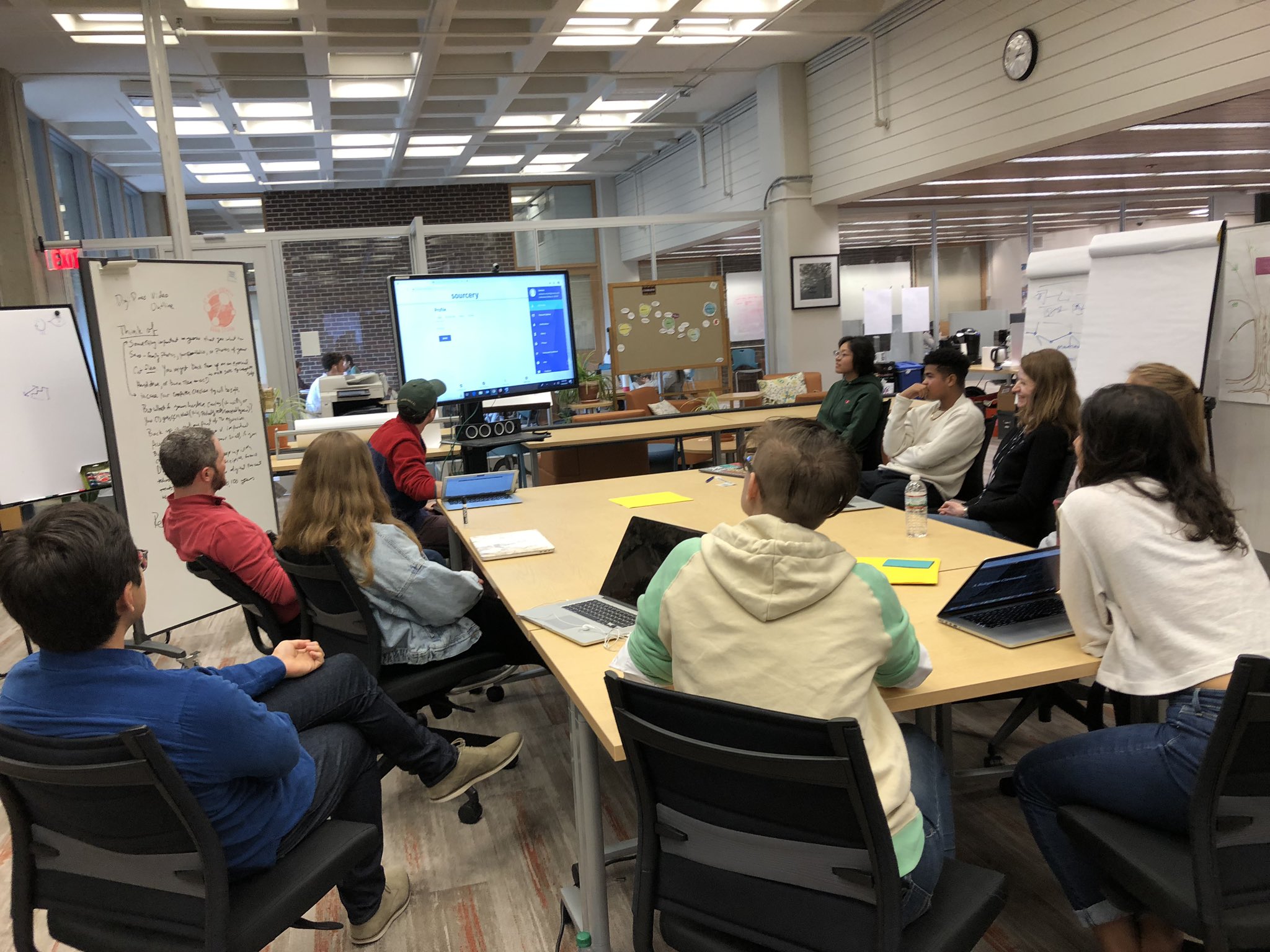Two faculty have been awarded a $35,000 planning grant from the National Endowment for the Humanities’ Humanities Connections program to develop a new undergraduate minor in digital public history.
The new minor expands on the established field of public history by providing students with the humanities knowledge and a set of digital media tools necessary to succeed as scholars in a digital world. Students interested in the minor can begin taking the pre-requisite courses in Fall 2020.
“There’s a long history of historians engaging with diverse audiences and the general public. Today, that public outreach is happening in digital venues, with digital methods,” says lead grant recipient Tom Scheinfeldt, associate professor of history in the College of Liberal Arts and Sciences and of digital media and design in the School of Fine Arts.
For example, he says, museums need to build interactive websites for online patrons, and libraries need digital archives for researchers to access. Humanities students with digital media and design experience—or digital media students with public history knowledge—will be better suited for those roles. It could open up new career opportunities, such as working as a digital media journalist, using data to enhance a story.
The minor will combine courses in history and digital media and design, in addition to a set of joint course offerings in digital and public humanities that bridge the two disciplines. Students who declare the digital public history minor will take a sequence of five transdisciplinary courses: Introduction to Digital Humanities, Topics in Public History, Collaborating with Cultural Organizations, an experiential Digital Public History Internship with a local library, archive, museum, or other cultural organization, and a project-based capstone course, the Digital Public History Practicum, co-taught by faculty from both History and DMD.
To complete the experiential learning internship, students will partner with organizations including museums, public libraries, galleries, historical societies, and social organizations.
“Our approach to internships and experiential learning opportunities will draw on the lessons we are learning from the pandemic and the monumental shifts in the meaning of public engagement that will have to take place,” says Fiona Vernal, associate professor of history and co-lead of the grant.
Jointly administered by the Departments of Digital Media and Design and History, the minor will be housed in and administered by Greenhouse Studios, an interdisciplinary digital humanities incubator that is a collaboration between these units and the UConn Library.
“The digital public history minor will give students the technical skills, content area knowledge, and collaborative working styles that will help them succeed in the 21st-century economy,” says Vernal.
Vernal and Scheinfeldt have coordinated in the past to get history students into DMD classes, and vice versa. But without a formal program to support that, it has been difficult to communicate the full range of opportunities available to students for collaboration in those fields.
“Books and journals are not gone, but they’re increasingly complemented by digital media,” says Scheinfeldt.
“Having expertise in digital media design is important to faculty and students.” For instance, Scheinfeldt’s expertise in building digital tools for historians helped launch a website created for the general public to read early modern Irish texts. Scheinfeldt worked with Wes Hamrick, a post-doctoral associate in Greenhouse Studios, and Brendan Kane, associate professor of History and Principle Investigator of the project, to launch LEAMH.org.
Beginning this fall, the two professors will test potential digital public history courses by doing focus groups with students to ensure the courses meet students’ needs. Scheinfeldt anticipates opening the minor for enrollment in Fall 2021.
Students who are interested in the minor can begin taking the pre-requisite courses in Fall 2020. The history pre-requisites include HIST 2100: The Historian’s Craft, in addition to a sequence of three content-centered courses in one of four content areas: Ancient, Medieval, & Early Modern; Modern Europe; United States; and Africa, Asia, Latin America, and the Middle East.
“For CLAS students as whole, we want to make the case for the continued relevance and purpose of historical thinking and methodologies, while also responding to the legitimate concerns about outfitting student for the 21st century marketplace,” Vernal said.



